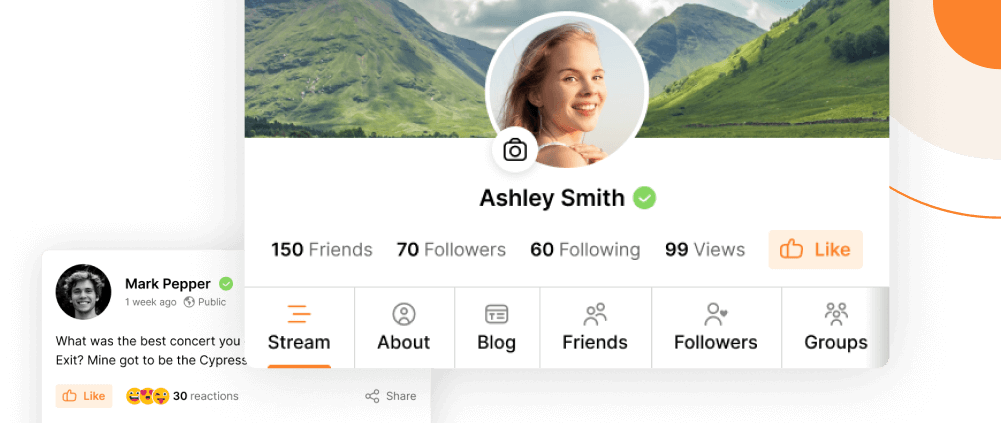In his book How Brands Become Icons, marketing theorist Douglas B. Holt puts forward that you need three types of consumers to sustain your brand; followers, insiders and feeders.
Followers are people who connect with the brand’s story, and incorporate it into their own sense of identity (think people who’ve grown up drinking Coke and feel a loyalty to the brand, people who choose to drink Heineken because their father did). Insiders are people who influence other people to buy (the cool kids at school, people who are “famous” on mainstream social media). Feeders use the brand to say something about themselves (people who choose Android to seem less “mainstream” than Apple users), and are the most fickle as they tend to abandon the brand as soon as it’s no longer socially relevant to them.
If we take Holt’s suggestion to be true (which, given his experience and credentials, we probably should), incorporating a private, self-hosted social network into your marketing strategy can be an important step toward long-term success.
Private social networks are ideal for followers. By creating your own social network, you’re encouraging and fostering the idea that your brand is something they’re a part of. For people who feel (or are inclined to feel) that a brand is part of their identity, something they’ve fully embraced, social networking is a great way to connect with others who feel the same way and want to share about their experiences.
Insiders are the Pied Pipers of marketing; people follow them because they want to be wherever they are, regardless of the destination. If an insider recommends your site or product, you might see a short-term spike in visitors and sales. If an insider joins your social network, their followers will likely join as well and once they start participating in the conversation, you have a much better chance of converting them to loyal, long-standing customers.
Feeders use brands to make statements; and if they’re part of your social network, that’s a much more powerful statement than just using your product. You’re creating a space in which they can fully explore the reasons they’re choosing to use your product or service, and the part of their identity it affirms.
On top of catering to all three groups, having your own social network is the ideal way to identify which of these categories your (prospective) buyers fall into, and which you’ll need more of to sustain your brand over time. You’ll get much clearer information and insights than you would from a page on one of the mainstream social networks; people won’t be swayed by how they want to be perceived by family and friends they’ve added on Facebook, and there’s no algorithms that will prevent people from interacting simply because your post didn’t show up in their newsfeed.
In short: having your own social network is one of the best things you can do to cultivate the audience you need for your brand’s long-term success.




Reactions & comments
Comments